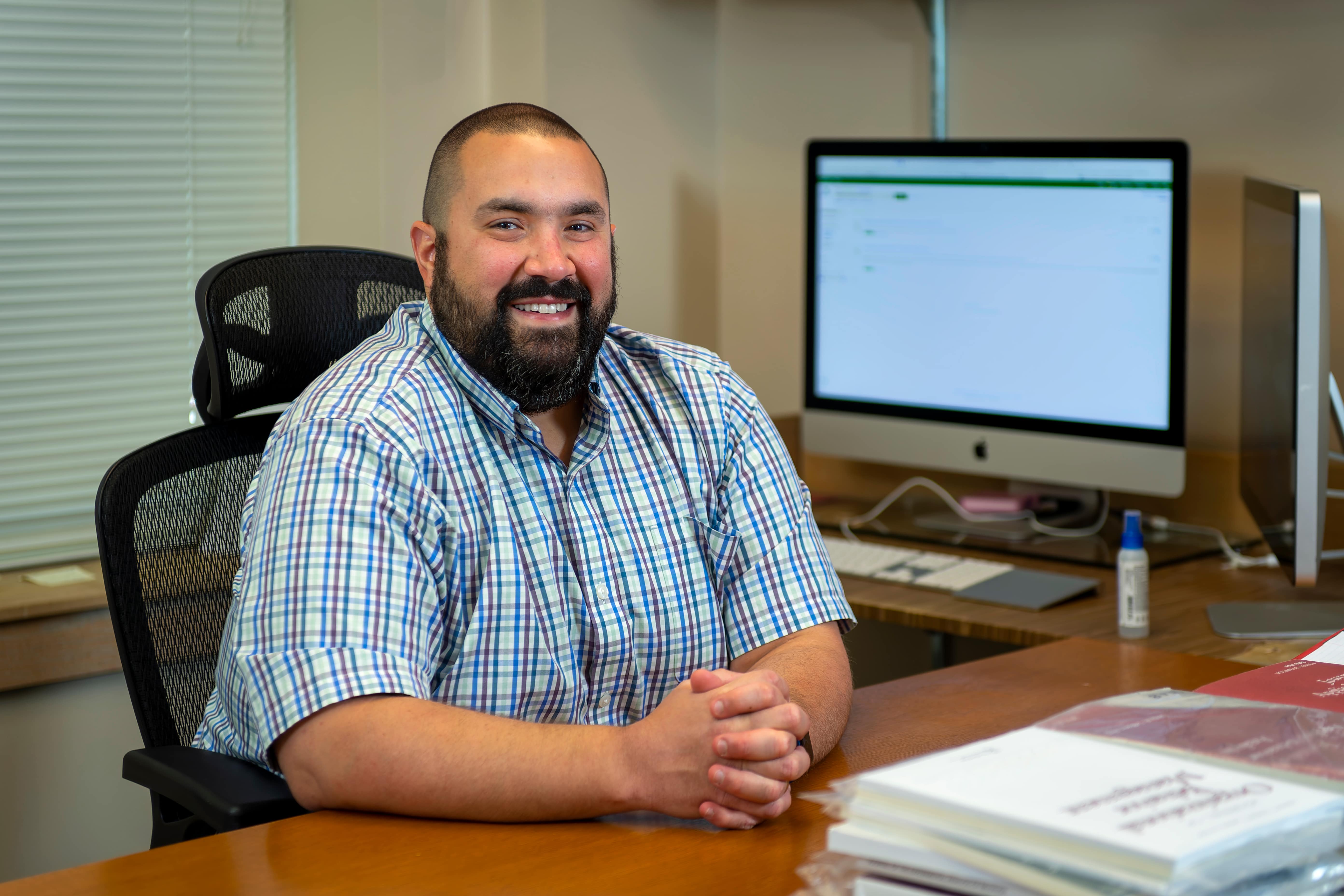 The Behavior Analysis Resource Center (BARC), one of the earliest established and
most well-funded programs in the University of North Texas College of Health & Public Service, is a clinical and research project at the Denton State Supported Living Center (DSSLC),
the Kristin Farmer Autism Center (KFAC), and the Lonestar Day Program (LSDP) that
provides services for individuals with intellectual and developmental disabilities.
Supervised by Dr. Joe Dracobly, assistant professor in the Department of Behavior
Analysis, with help from UNT Associate Professor Emeritus Dr. Richard Smith, the center
provides students and professionals who work at the organizations and use behavior
analysis research to treat residents of the DSSLC, children at KFAC and clients of
the LSDP.
The Behavior Analysis Resource Center (BARC), one of the earliest established and
most well-funded programs in the University of North Texas College of Health & Public Service, is a clinical and research project at the Denton State Supported Living Center (DSSLC),
the Kristin Farmer Autism Center (KFAC), and the Lonestar Day Program (LSDP) that
provides services for individuals with intellectual and developmental disabilities.
Supervised by Dr. Joe Dracobly, assistant professor in the Department of Behavior
Analysis, with help from UNT Associate Professor Emeritus Dr. Richard Smith, the center
provides students and professionals who work at the organizations and use behavior
analysis research to treat residents of the DSSLC, children at KFAC and clients of
the LSDP.
“Graduate students have the opportunity to acquire behavior analytic skills related to clinical service delivery, collaborate as part of interdisciplinary teams, conduct pre-service new employee training, and conduct intensive clinical interventions as part of a research lab specializing in the assessment and treatment of severe challenging behavior,” Dr. Dracobly said. “Our current research projects include procedures to increase the efficacy of treatment in the everyday environment, the interaction between trauma and behavior change, efficient functional analysis, and basic processes in assessment and behavior change.”
His life-changing research includes the establishment of treatments that allow BARC patients with intellectual disabilities who may not be able to verbalize their feelings to address traumas they may be suffering so that they can experience better quality of life and more independence.
“Individuals with intellectual disabilities are at significantly higher risk of experiencing trauma,” Dracobly said. “Due to their often-limited communication skills, they may not be able to tell us about the trauma or how it is continuing to impact them, leaving them to suffer in silence. We have developed a simple method using positive, individual-focused assessments to identify substantial changes in behavior, including reductions in adaptive skills and negative changes in challenging situations. Through a combination of behavioral and technological advancements, we give our clients a new way to ‘tell’ us when they’re experiencing stress related to things present during trauma.”
Through positive interventions at the time physiological and behavioral signs of trauma are identified, the behavior analysts can minimize the long-term effects and reduce the potential for major behavioral issues.
“As we advance our assessments for better identifying trauma and its on-going impact in the lives of individuals with intellectual disabilities, we will be better able to provide trauma-specific treatments customized to each individual’s unique needs,” Dracobly said. “Not only can we begin to reverse the negative effects from trauma, but we’ll be able to help our clients re-gain lost skills and recapture their joy. Through this method, we’ve seen our clients learn new skills when they previously were too stressed to work, and they now have increased opportunities for interacting with others. This has given them growing opportunities to share their unique gifts and talents with the rest of the world.”
As part of their work at the DSSLC, the students and other clinicians then train the caregivers to use these same trauma-informed research and treatment plans to help them identify when residents are experiencing a trauma response without them needing to explain their feelings.
The BARC meets weekly (Wednesday at 3:30 p.m. during the Spring 2025 semester) and has been generously funded through the years by Texas Health & Human Services Commission, the Lone Star Day Program, and Parents of Autistic Children of Texas (POACTX)/The Olive Tree Alliance (TOTA).